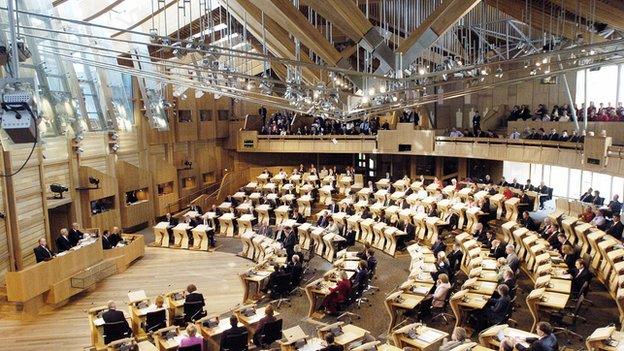Scottish independence: Report analyses childcare pledge revenue impact
- Published

The government estimated about 240,000 children would benefit once the policy was fully rolled out
Figures have been released by the Scottish government which aim to show why independence is needed to achieve a "transformational" shift in childcare.
The SNP says an independent Scotland aimed to provide 30 childcare hours a week, for one year olds to school age.
New analysis of the policy impact said a 1% rise in corporation tax take, NI, VAT and income tax, and a 1% saving in benefits would boost revenue by £350m.
Critics have pointed out that much more can be done now to improve childcare.
Increasing childcare provision is seen by the Scottish government as addressing one of the key barriers to involvement in the labour market, especially among women.
Scotland's Future, the Scottish government's White Paper on Independence, which was published in November, pledged 30 hours of childcare per week in term time for all three and four-year-olds, as well as vulnerable two-year-olds. The longer-term goal was to extend this to all children aged one to school age.
'Hugely important'
Speaking on the BBC's Sunday Politics Scotland programme, First Minister Alex Salmond said: "The £100m is the estimate of the initial cost of childcare and that's covered by the other changes we'd make in the White Paper, that starts the policy off.
"Changes in female participation in the labour market can occur very quickly. Over the last year there's been a 3.5% rise, 60,000 more women working in full-time jobs in Scotland in the year to October.
"Our point is that we're only going to get to that level of participation in the labour market that Sweden has already achieved if we have the childcare policies to back it up."
First Minister Alex Salmond claims Scottish independence would allow a 'transformational shift' in childcare policy
Mr Salmond said the report demonstrated how the revenue through increased tax receipts would remain in Scotland.
"What this really important paper points out is that in the context of an independent Scotland the proceeds of a 6% rise in female participation rates in the labour market would come to the Scottish exchequer and these proceeds would be very substantial - some £700m," he said.
"The difference of course is, as the paper also demonstrates, and this is hugely important information, is that with the current system - even after the Scotland Act - 88% of that increased revenue goes to the London exchequer.
"And I don't think anybody seriously believes that George Osborne would have any intention of handing it back to Scotland to finance the childcare programme."
The Scottish government estimated that about 240,000 children would benefit once the policy was fully rolled out, and said the current childcare workforce would double, to up to 35,000 jobs.
After the SNP laid out its vision for childcare, Scottish Labour leader Johann Lamont called on First Minister Alex Salmond to "put his money where his mouth is and make a difference right now".
Scottish Liberal Democrat leader Willie Rennie claims new Scottish government figures make the case for investing in childcare but not for independence
Scottish Liberal Democrat leader Willie Rennie told the BBC: "What Alex Salmond has set out today is a case for investing in childcare and nursery education, it's not a case for independence.
"He's set out the economics of spend to save and that's something in this particular area that I would welcome.
"He implies that the rest of the UK is going in a different direction on childcare. Actually, England is ahead with two-year-olds and three and four-year-olds' nursery education.
"This is not a dividing line for the independence movement. The evidence so far is that even in tough times, the coalition government has invested in nursery education and childcare. The evidence in Scotland is the opposite, they're lagging behind."
- Published12 January 2014
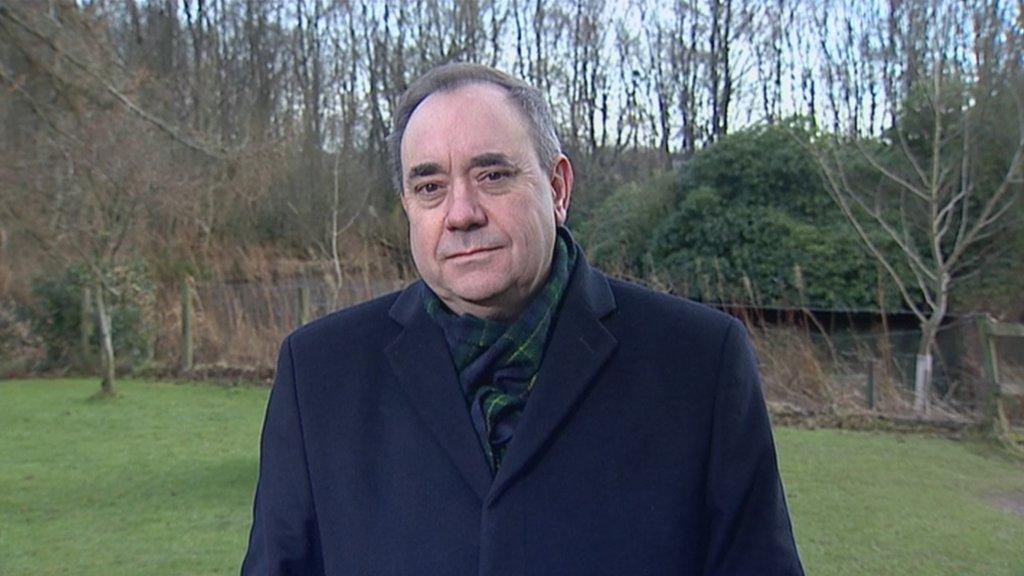
- Published12 January 2014
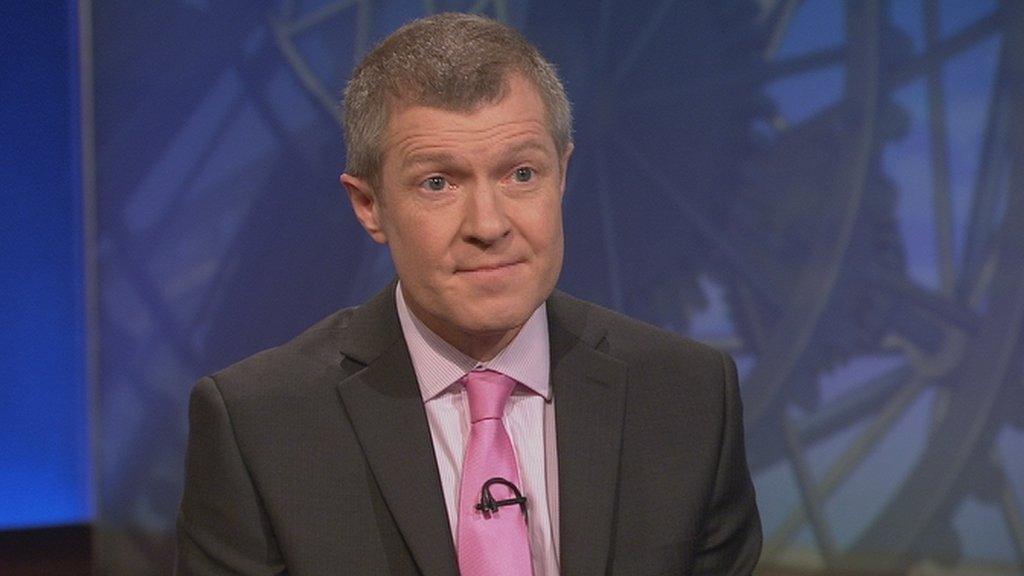
- Published18 June 2013
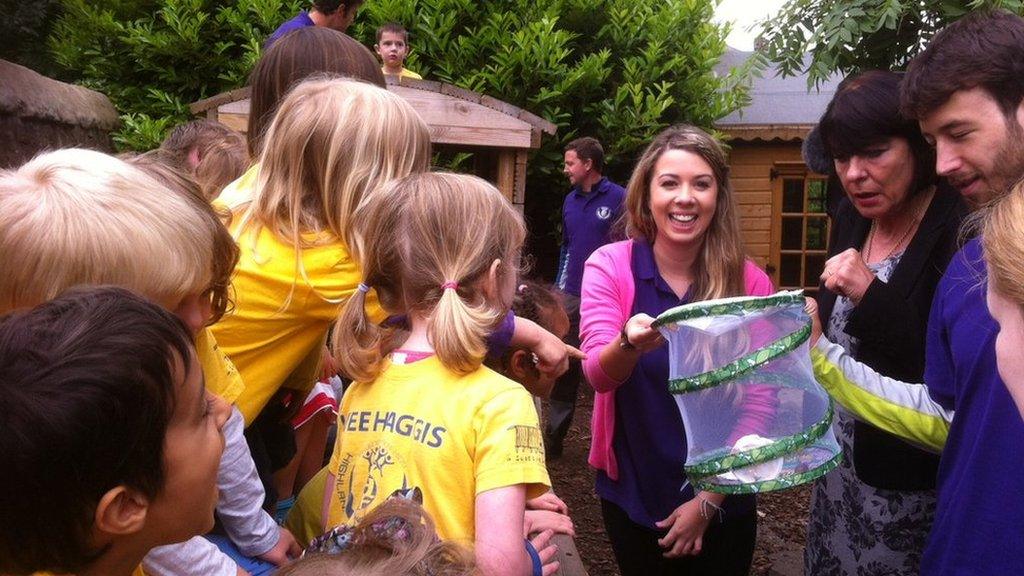
- Published27 November 2013
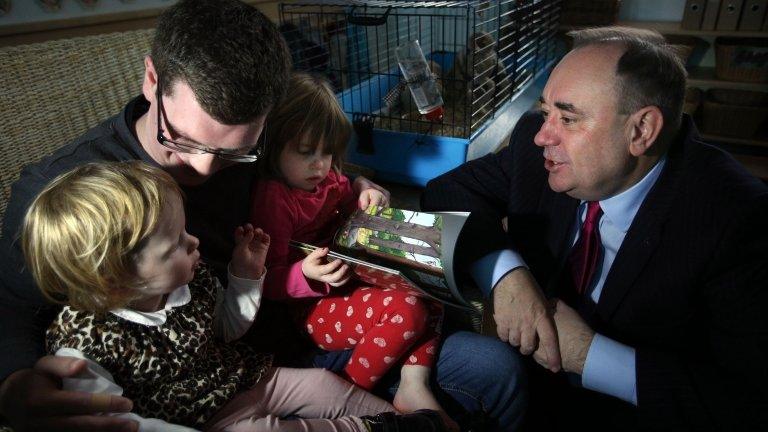
- Published27 November 2013
